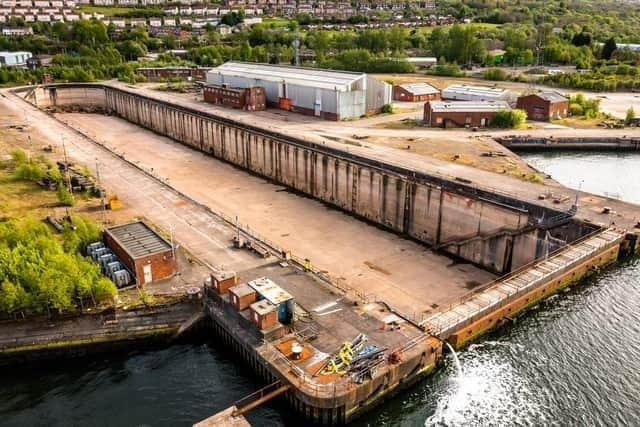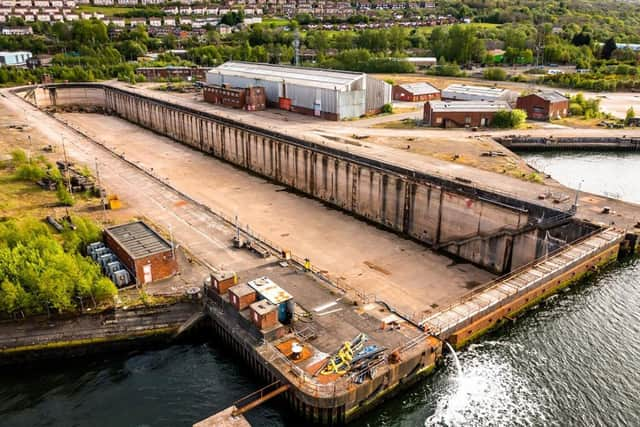Nationalising Scottish port could 'give Scotland a bad reputation', trade body warns
A national trade body has warned campaigners that nationalising Clydeport could “give Scotland a bad reputation” and scare off potential investors.
Campaigners are calling for Clydeport to be nationalised in a bid to bring all ports and harbours on the River Clyde into public ownership. However, the British Ports Association has now written to the Scottish Parliament to say any attempts to nationalise the port could harm the industry.
Advertisement
Hide AdAdvertisement
Hide AdPeel Ports Group owns Clydeport and acts as the harbour authority on the river, but local campaigners say the group has made a “complete shambles” of one of Scotland’s biggest assets.


They want to see Peel Ports revoked as the harbour authority and for a municipal port authority to be established in its place.
The group is also calling for a compulsory purchase order to be issued for Inchgreen Dry Dock, saying it has been left to lie empty.
The organisation has submitted a petition to Holyrood calling on the government to use both the Harbours Act 1964 and the Marine Navigation Act 2013 to revoke Peel Ports as the harbour authority for the River Clyde.
They also want to see Inchgreen Dry Dock bought by the government, saying it could be used to service and maintain the CalMac ferry fleet.


However, in a statement the British Ports Association defended Peel Ports, saying it was a “successful” port operator with a “strong track record of investing in infrastructure”.
The association said: “Ports cannot be political footballs, kicked in different directions by stakeholders. Any move by central government or stakeholders to forcibly change ports and compulsorily seize assets would give Scotland a bad reputation, scare off potential investors and tar the ports industry in uncertainty.”
It added: “Mechanisms such as the forcible transfer or compulsory purchase of port assets would completely undermine confidence in our sector and be viewed with much negativity across Scotland, the UK and even internationally.
Advertisement
Hide AdAdvertisement
Hide Ad“We would strongly defend our sector’s independence and warn against any direction from central government.
“Forcibly seizing ports or assets risks damaging confidence in our sector and would threaten or undermine investment across Scotland, especially if the country is not seen as a stable place to invest in long-term infrastructure.”
The Scottish Government previously said it had no plans to nationalise Clydeport, despite separately nationalising the Ferguson Marine shipyard only a few miles away in Port Glasgow back in 2019.
Those behind the petition, however, say they will not be deterred in their fight to get Clydeport nationalised.
Robert Buirds said: “As expected, the British Ports Association would not bite the hand that feeds it, and therefore defends the privatisation model and its independence. Market-led independence does not address the particular needs of the country or its economy, and is totally focused on its margins and shareholders.”
Peel Ports said it had invested “multi-millions” into a number of different operations on the west coast, which have provided hundreds of jobs, including £25 million on freight cranes at Greenock Port and £19.2m joint investment on cruise berthing and passenger facilities at Greenock Ocean Terminal.
Comments
Want to join the conversation? Please or to comment on this article.